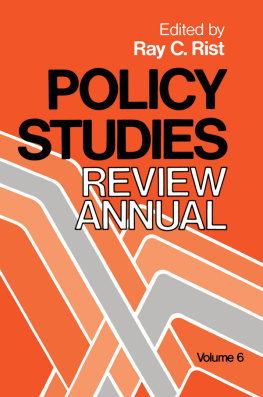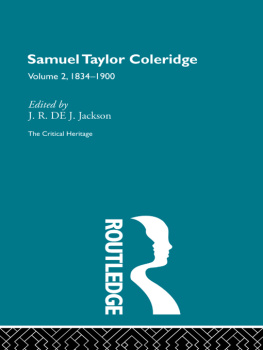THE JEWISH LAW ANNUAL
THE JEWISH LAW
ANNUAL
VOLUME FIVE
LEIDEN THE INSTITUTE OF JEWISH LAW
E. J. BRILL BOSTON UNIVERSITY SCHOOL OF LAW
1985
The Institute of Jewish Law
Professor NEIL S. HECHT, Director
Professor WILLIAM SCHWARTZ, Dean
Boston University School of Law
765 Commonwealth Avenue
Boston, MA 02215
Editor:
BERNARD S. JACKSON
Editorial Advisory Board:
| H. BEN MENAHEM, Jerusalem | N. S. HECHT, Boston |
| H. H. COHN, Jerusalem | B.J. MEISLIN, New York |
| D. DAUBE, Berkeley | S. M. PASSAMANECK, LOS Angeles |
| M. ELON, Jerusalem | D. PIATTELLI, Rome |
| Z. W. FALK, Jerusalem | A. M. RABELLO, Jerusalem |
| W. FRANKEL, London | N. RAKOVER, Jerusalem |
| M. D. A. FREEMAN, London | D. B. SINCLAIR, Edinburgh |
| G. VERMES, Oxford |
The Annual is published under the auspices of The Institute of Jewish Law, Boston University School of Law, in conjunction with the Oxford Centre for Postgraduate Hebrew Studies and the International Association of Jewish Lawyers and Jurists.
The Annual enjoys complete editorial independence. Contributions are welcome from all, irrespective of religious faith or denomination. Neither the Editor nor the members of the Editorial Advisory Board are to be associated with the views expressed by contributors.
Editorial communications should be addressed to Prof. B. S. Jackson, 18 Lawton Road, Roby, Merseyside L36 4HW, England. Intending contributors are asked to request a style-sheet before their contribution is typed.
Orders in the United States and Canada may be sent direct or via booksellers to The Institute of Jewish Law, Boston University School of Law, 765 Commonwealth Avenue, Boston, MA 02115.
Elsewhere to E. J. Brill, Postbus 9000, 2300 PA Leiden, The Netherlands.
Concessions are available to members of The Jewish Law Association, details of which may be obtained from Dr. Dan Cohn-Sherbok, Centre for the Study of Religion in Society, University of Kent, Canterbury, Kent CT2 7NX, England; Dr. N. Rakover, Department of Jewish Law, Ministry of Justice, Jerusalem, Israel; or Prof. S. M. Passamaneck, Hebrew Union College, 3077 University Ave., Los Angeles, California 90007, U.S.A.
ISBN 90 04 07285 3
Copyright 1985 by E. J. Brill, Leiden, The Netherlands and Trustees of Boston University
All rights reserved. No part of this book may be reproduced or translated in any form, by print, photoprint, microfilm, microfiche or any other means without written permission from the publisher
PRINTED IN THE NETHERLANDS BY E. J. BRILL
We express our appreciation to the Bronfman Foundation and to Mr. Harold Isen through whose generosity this volume has been published.
CONTENTS
M. SHAVA,
Meir SICHEL,
M. CHIGIER,
D. B. SINCLAIR,
(J. D. Bleich)
(N. Rakover)
(B. J. MEISLIN)
(R v. Lemon) (G. H. GORDON, with a postscript by B. S. JACKSON)
(Seide v. Gillette Industries Ltd.) M. JEFFERSON
FROM THE EDITOR
Commencing with the present issue, The Jewish Law Annual will be published under the auspices of The Institute of Jewish Law at Boston University School of Law. The Editorial Advisory Board warmly welcomes this development, which will preserve the technical quality of the publication while at the same time ensuring the regularity of its appearance. Thanks are due, in particular, to the dedication and commitment of Professor Neil S. Hecht, Director of The Institute of Jewish Law, who joins the Editorial Advisory Board, and to the Dean of Boston University School of Law, Professor William Schwartz. Support for the publication has also been generously given by the Bronfman Foundation, contributing through the Jewish Law Publication Fund, and from Mr. Harold Isen.
The new partnership has a significance far beyond that of funding. With the establishment of The Institute of Jewish Law at Boston University School of Law, a major step forward is being taken in the growth of Jewish law as an academic discipline in American law schools. For this Institute is the first, to my knowledge, to be established in an entirely secular law school, that is, one not associated with a Jewish educational institution. The Boston University School of Law thus places itself in the vanguard of those seeking to introduce Jewish law as an academic discipline in American law schools. Since the Institute is committed to a programme of research and publication in the field of Jewish law, we may anticipate its making a major contribution to the legal literature needed to enable Jewish law to be taught in American law schools as an academic discipline on a level of excellence.
With Volume VI (1986) The Jewish Law Annual will commence the publication of a major, two-part symposium on the Philosophy of Jewish Law. The Chronicle and Survey of Recent Literature sections will continue and, it is hoped, be strengthened.
PART ONE
JEWISH LAW IN ISRAEL
THE NATURE AND SCOPE OF JEWISH LAW IN ISRAEL AS APPLIED IN THE CIVIL COURTS AS COMPARED WITH ITS APPLICATION IN THE RABBINICAL COURTS
by
MENASHE SHAVA*
1. Introduction
It was provided in Article 47 of the Palestine Order-in-Council, 1922 that the Civil Courts in Palestine shall exercise their jurisdiction over matters of personal status1 in conformity with any law, ordinances or regulations that may hereafter be applied or enacted and subject thereto according to the personal law applicable.
The first question, therefore, is: what is that personal law?
In the case of a foreigner, art. 64(2) of the Order-in-Council expressly directs that the personal law in his regard is the law of his nationality.2 There is no statutory direction, however, as regards the personal law of a local citizen, but the case law establishes that his personal law is the religious law applicable to him.3 Accordingly, when any matter of personal status concerning a local citizen is decided before a civil court in Israel, then, in the absence of any civil-territorial enactment substantively regulating the matter concerned, personal law will apply thus, in the case of a Jew, Jewish law.
During the period of the British Mandate, and for a short time thereafter, the principle of personal-religious law4 reigned in the civil courts in relation to all matters of personal status, save in certain areas of succession testate and intestate. Since the establishment of the State of Israel, however, a gradual but clear transition, from the principle of personal-religious law to one of territorial-secular law, has manifested itself in a series of enactments passed by the Knesset and embracing a wide spectrum of matters of personal status. These enactmentsamong them the Women's Equal Rights Law, 1951; the Capacity and Guardianship Law, 1962; the Succession Law, 1965; the Spouses (Property Relations) Law, 1973 and the Adoption of Children Law, 1981 introduce civil-territorial directives which are derived from various sources, sometimes also from Jewish law,5 and now apply equally to all, regardless of the religious belonging of the parties. Hence in matters of personal status affecting Jews, Jewish law will be applied in the civil courts only in those areas of personal status which have not yet been subjected to a civil-territorial statutory arrangement, such areas still including matters like marriage and divorce,6 alimony,7 child maintenance and others.8








